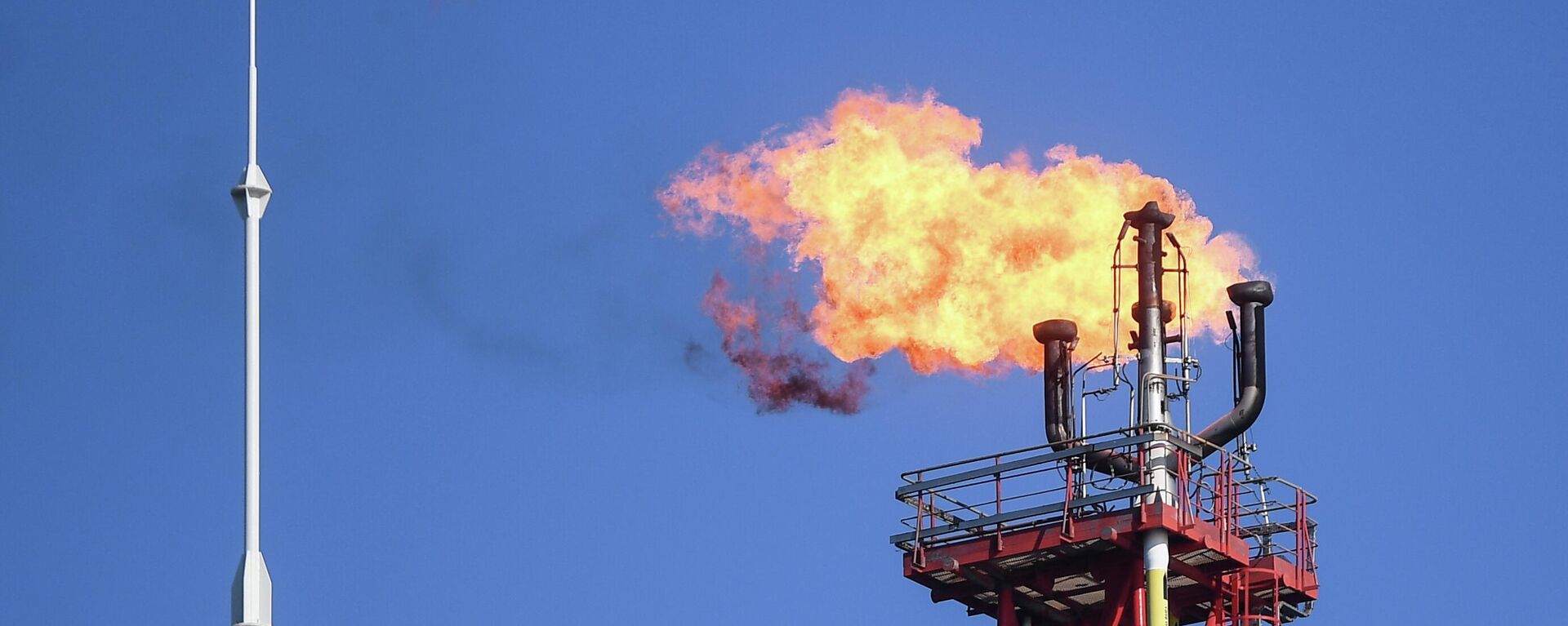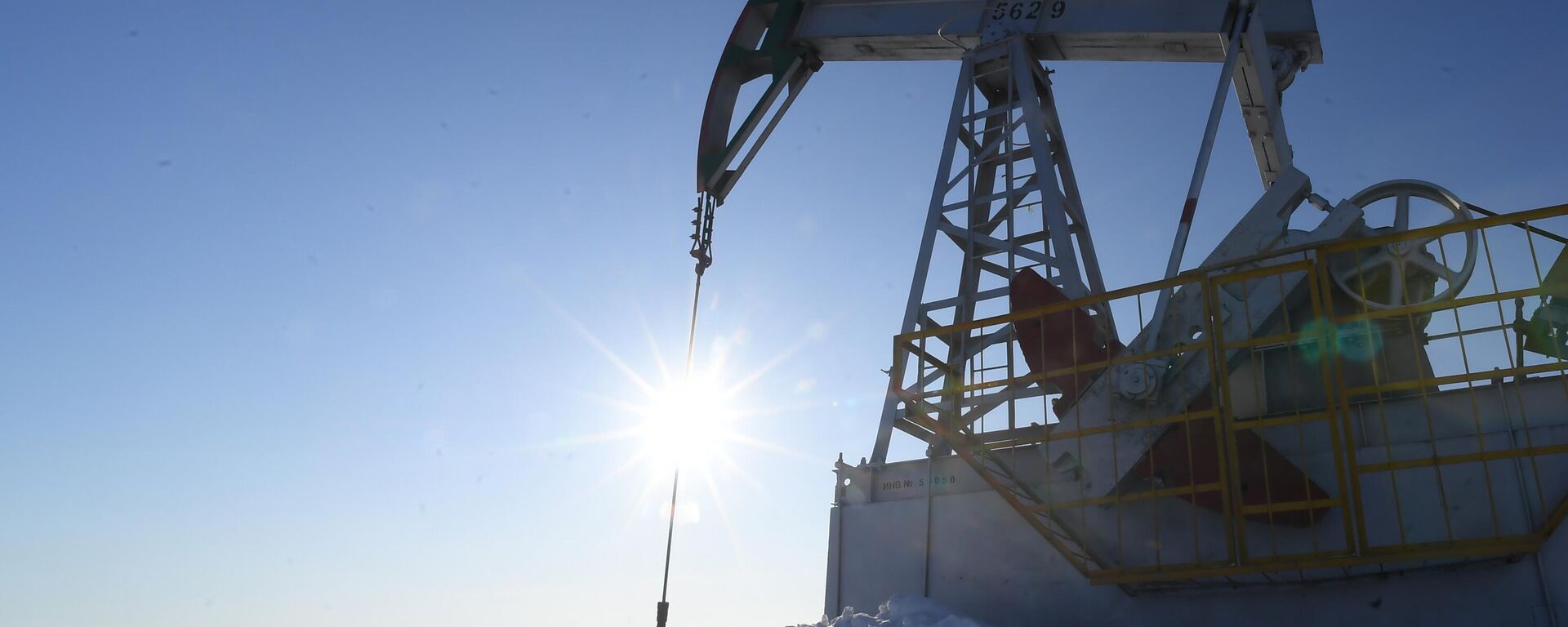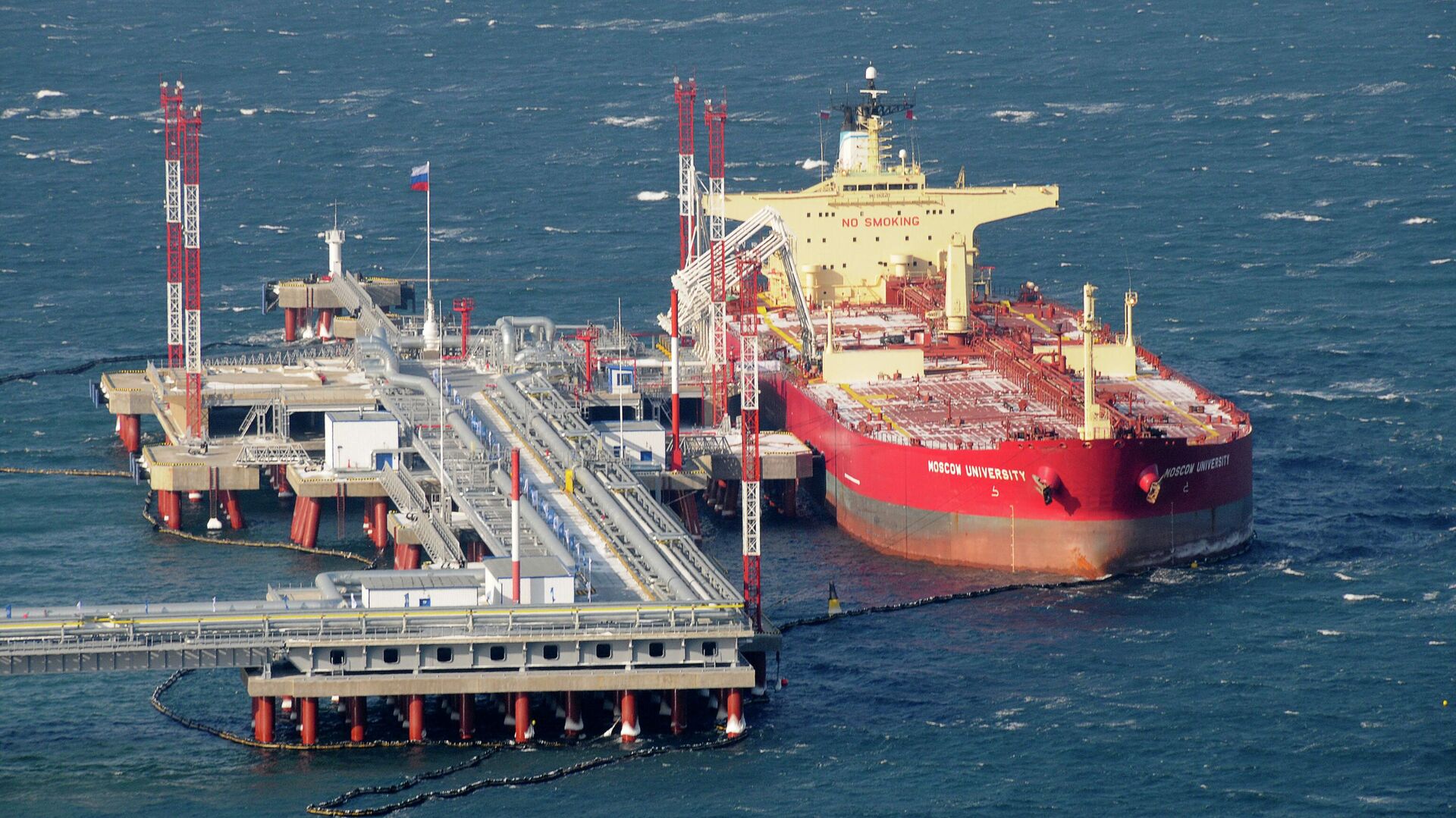https://sputnikglobe.com/20221206/how-g7-price-cap-started-disrupting-global-oil-flows-while-failing-to-slash-russias-earnings-1105113734.html
How G7 Price Cap Started Disrupting Global Oil Flows While Failing to Slash Russia's Earnings
How G7 Price Cap Started Disrupting Global Oil Flows While Failing to Slash Russia's Earnings
Sputnik International
The G7 price cap on Russian oil may produce results most industrialized nations don't expect, Demostenes Floros, senior energy economist at CER-Centro Europa... 06.12.2022, Sputnik International
2022-12-06T18:14+0000
2022-12-06T18:14+0000
2023-04-12T17:15+0000
analysis
us
europe
g7
oil
sanctions
asia
china
2022 russian oil price cap
india
https://cdn1.img.sputnikglobe.com/img/07e6/07/1b/1097841995_0:276:3083:2010_1920x0_80_0_0_f18d6375a88874bc7cf2fefbb3da4764.jpg
In the short term oil prices are unlikely to increase tremendously after the introduction of the $60 cap, according to Demostenes Floros, senior energy economist at CER-Centro Europa Ricerche.However, when it comes to the long term consequences, there will be two other factors to analyze, according to the academic. The first one is China's demand, which is likely to go up after the easing of COVID-19 restrictions. Second, the OPEC+ club's output decision during the next meeting is a very important issue, Floros noted.He noted that any increase in oil costs in the EU at a time when it is hurt by inflation and an unfolding recession will have a negative impact on the bloc's economy. Floros explained that "43% of EU inflation is related to energy prices, while only 17% of US inflation is due to energy prices and this is a very big difference between the European Union and the United States."Under the G7's policy, which was joined by Australia and the EU, tankers carrying Russian crude oil are barred from getting Western maritime insurance unless the oil is sold below the G7’s price cap.The plan is to strip Russia of at least some of its revenues for hydrocarbons. However, Moscow has already made it clear that it will not sell its crude to anyone implementing the measure, no matter how high or low the cap is. The very idea of price capping contradicts the free market-based global order, thus creating a dangerous precedent, according to Russian observers.Meanwhile, the G7's initiative has already brought some unpleasant surprises to its designers. The Financial Times broke on early Tuesday that an oil tanker jam had formed off Turkey as Ankara demands confirmation of insurance cover after the measure came into force.The Turkish authorities stated that all crude tankers passing through the Bosphorus and Dardanelles should provide letters from their protection and indemnity providers, known as P&I Clubs, confirming that they have valid insurance which covers incidents such as oil spills and collisions.As a result, around 19 crude oil tankers were seen waiting to cross the straits on December 5. P&I providers asserted to the press that the Turkish request went "well beyond" the general information normally required.Ironically, the crude stuck in Turkish waters wasn't Russia's: much of the oil is from Kazakhstan, which is not targeted by sanctions. Furthermore, the shippers held up in the straits have insurance from Western providers. At the same time, it turned out that Russian insurance companies had already provided letters of confirmation to Turkish authorities in order to secure passage through Turkish waters.The media outlet acknowledged that it was the first sign that the Western price cap could disrupt global oil flows beyond Russia's exports.In addition to that, Russia's ESPO oil blend from the Far Eastern port of Kozmino was selling for roughly $79 per barrel in Asian markets on December 5, higher than the price cap, the Western press reported, citing Refinitiv, an American-British global provider of financial market data.According to S&P Global, Asia is set to absorb a considerable amount of Russian crude volumes displaced as a result of the EU sanctions. Having prohibited its insurance companies from providing services to Russian oil carriers unless they adhere to the cap, Western countries are reaching out to non-EU insurance companies to ensure that they do not break any sanction guidelines. However, Russia has employed its own fleet of tankers and its own insurance companies, which used to provide a swift flow of the country's commodities throughout the Cold War.
https://sputnikglobe.com/20221129/why-g7s-muddled-plan-to-cap-russian-oil-prices-is-bursting-apart-at-the-seams-1104834100.html
https://sputnikglobe.com/20221205/why-g7-price-capping-wont-harm-russia-but-will-accelerate-inflation--recession-in-the-west-1105075488.html
china
Sputnik International
feedback@sputniknews.com
+74956456601
MIA „Rosiya Segodnya“
2022
News
en_EN
Sputnik International
feedback@sputniknews.com
+74956456601
MIA „Rosiya Segodnya“
Sputnik International
feedback@sputniknews.com
+74956456601
MIA „Rosiya Segodnya“
price cap on russian oil, anti-russian sanctions, inflation, recession, russian espo oil blend, g7, the eu
price cap on russian oil, anti-russian sanctions, inflation, recession, russian espo oil blend, g7, the eu
How G7 Price Cap Started Disrupting Global Oil Flows While Failing to Slash Russia's Earnings
18:14 GMT 06.12.2022 (Updated: 17:15 GMT 12.04.2023) The G7 price cap on Russian oil may produce results most industrialized nations don't expect, Demostenes Floros, senior energy economist at CER-Centro Europa Ricerche and contract professor of Master "Italy-Russia International Relations," University of Bologna, told Sputnik.
In the short term oil prices are unlikely to increase tremendously after the introduction of the $60 cap, according to Demostenes Floros, senior energy economist at CER-Centro Europa Ricerche.
However, when it comes to the long term consequences, there will be two other factors to analyze, according to the academic. The first one is China's demand, which is likely to go up after the easing of COVID-19 restrictions. Second, the OPEC+ club's output decision during the next meeting is a very important issue, Floros noted.
"With regard to traps and pitfalls of energy supply politicization, the risk is to destabilize the market after the previous destabilization that the market had during the COVID crisis. And this would of course be a very bad situation," the academic warned.

29 November 2022, 15:45 GMT
He noted that
any increase in oil costs in the EU at a time when it is hurt by inflation and an unfolding recession will have a negative impact on the bloc's economy. Floros explained that
"43% of EU inflation is related to energy prices, while only 17% of US inflation is due to energy prices and this is a very big difference between the European Union and the United States.""I think that the price cap will increase the split within the EU members, especially if they do not agree on the gas price cap that they are going to discuss on December 13," forecast Floros. "The EU may have the problem of purchasing the amount of diesel that it needs. This may be the biggest problem that the EU would have to face after February 5. And last but not least, I think that prices will increase, especially if other OPEC+ producers will not compensate Russian output."
Under the G7's policy, which was joined by Australia and the EU, tankers carrying Russian crude oil are barred from getting Western maritime insurance unless the oil is sold below the G7’s price cap.
The plan is to strip Russia of at least some of its revenues for hydrocarbons. However, Moscow has already made it clear that it will not sell its crude to anyone implementing the measure, no matter how high or low the cap is. The very idea of price capping contradicts the free market-based global order, thus creating a dangerous precedent, according to Russian observers.

5 December 2022, 18:16 GMT
Meanwhile, the G7's initiative has already brought some unpleasant surprises to its designers. The Financial Times broke on early Tuesday that an oil tanker jam had formed off Turkey as Ankara demands confirmation of insurance cover after the measure came into force.
The Turkish authorities stated that all crude tankers passing through the Bosphorus and Dardanelles should provide letters from their protection and indemnity providers, known as P&I Clubs, confirming that they have valid insurance which covers incidents such as oil spills and collisions.
As a result, around 19 crude oil tankers were seen waiting to cross the straits on December 5. P&I providers asserted to the press that the Turkish request went "well beyond" the general information normally required.
Ironically, the crude stuck in Turkish waters wasn't Russia's: much of the oil is from Kazakhstan, which is not targeted by sanctions. Furthermore, the shippers held up in the straits have insurance from Western providers. At the same time, it turned out that Russian insurance companies had already provided letters of confirmation to Turkish authorities in order to secure passage through Turkish waters.
The media outlet acknowledged that it was the first sign that the Western price cap could disrupt global oil flows beyond Russia's exports.
In addition to that, Russia's ESPO oil blend from the Far Eastern port of Kozmino was selling for roughly $79 per barrel in Asian markets on December 5, higher than the price cap, the Western press reported, citing Refinitiv, an American-British global provider of financial market data.
According to S&P Global, Asia is set to absorb a considerable amount of Russian crude volumes displaced as a result of the EU sanctions.
Having prohibited its insurance companies from providing services to Russian oil carriers unless they adhere to the cap, Western countries are reaching out to non-EU insurance companies to ensure that they do not break any sanction guidelines. However,
Russia has employed its own fleet of tankers and its own insurance companies, which used to provide a swift flow of the country's commodities throughout the Cold War.






